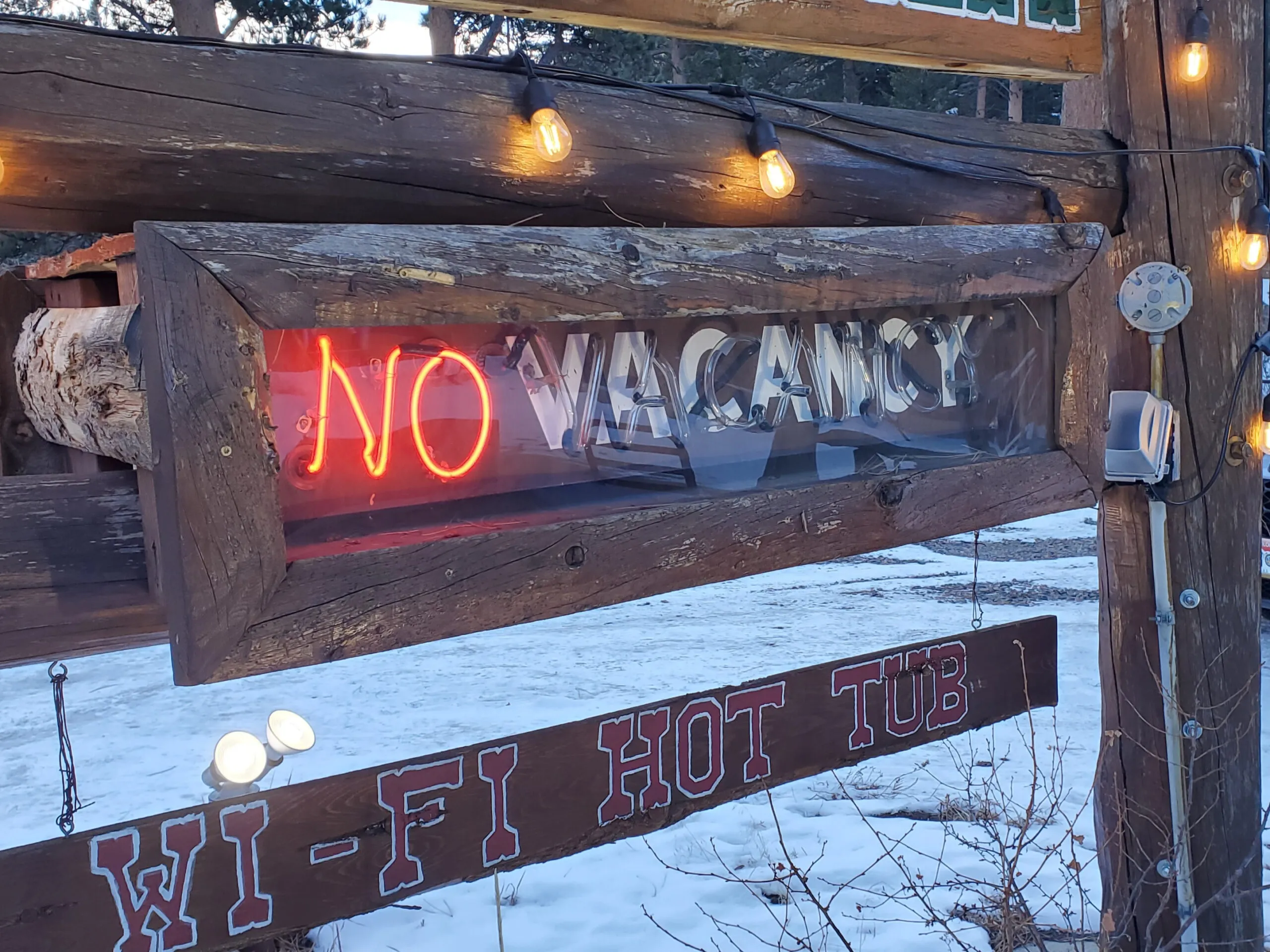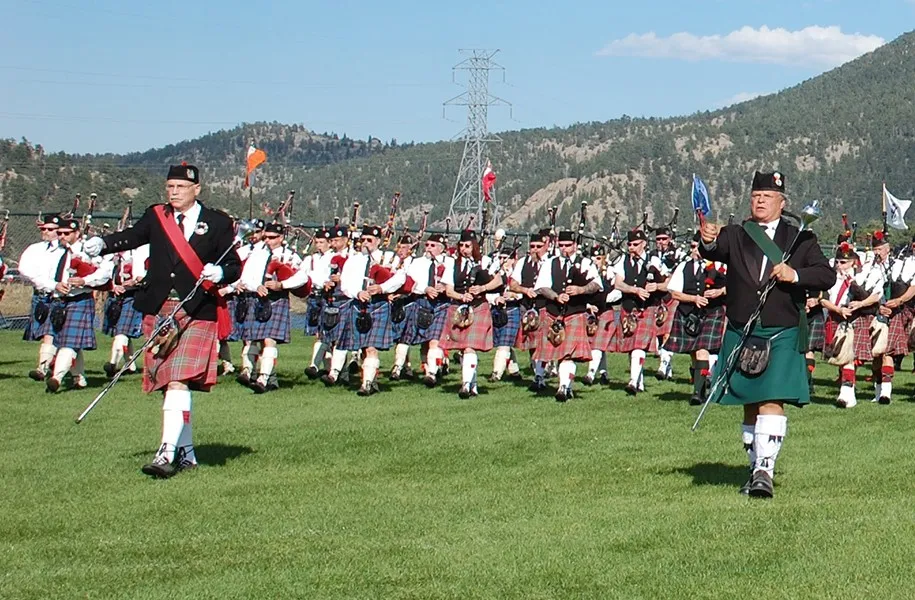Momentous mountain month
Big plans, decisions to shape future in foothills towns
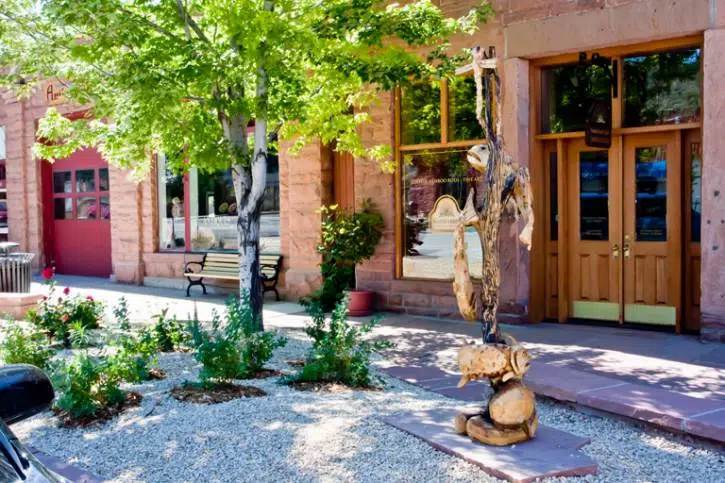
Editor’s note: This story has been changed to correct the spelling of Miranda Fisher’s first name.
Merriam-Webster defines an “august occasion” as one full of majesty, grandeur and importance. Those adjectives certainly apply to August in the major foothills communities along the Northern Front Range – Nederland, Estes Park and Lyons – because what’s happening there this month is likely to have huge impacts on their futures.
Nederland
SPONSORED CONTENT
For the town at the top of Boulder Canyon and the gateway to the Eldora winter sports area, four dates in August have momentous implications. On Aug. 3 last year, the town adopted an ambitious blueprint for its future. This year, a Board of Trustees meeting Tuesday, Aug. 16, and a special election, Aug. 23, to fill the vacant posts of mayor and one town trustee could determine the fate and scope of downtown redevelopment. And when the town board meets again, Aug. 30, it will tackle the town’s aggravating traffic and parking problems.
The vision statement approved in 2021 by the Town Board, “Envision 2030,” is “our commitment document for what we’re striving for for the future,” said Town Administrator Miranda Fisher. “The community members who put that together narrowed it on the need to diversify our economy, looking for long-term stability.”
The goals focus on eight areas, each crafted by its own subcommittee: arts, culture and education; community engagement; economic development; environmental sustainability; health, human and social services; housing; municipal government, and parks, recreation and open space.
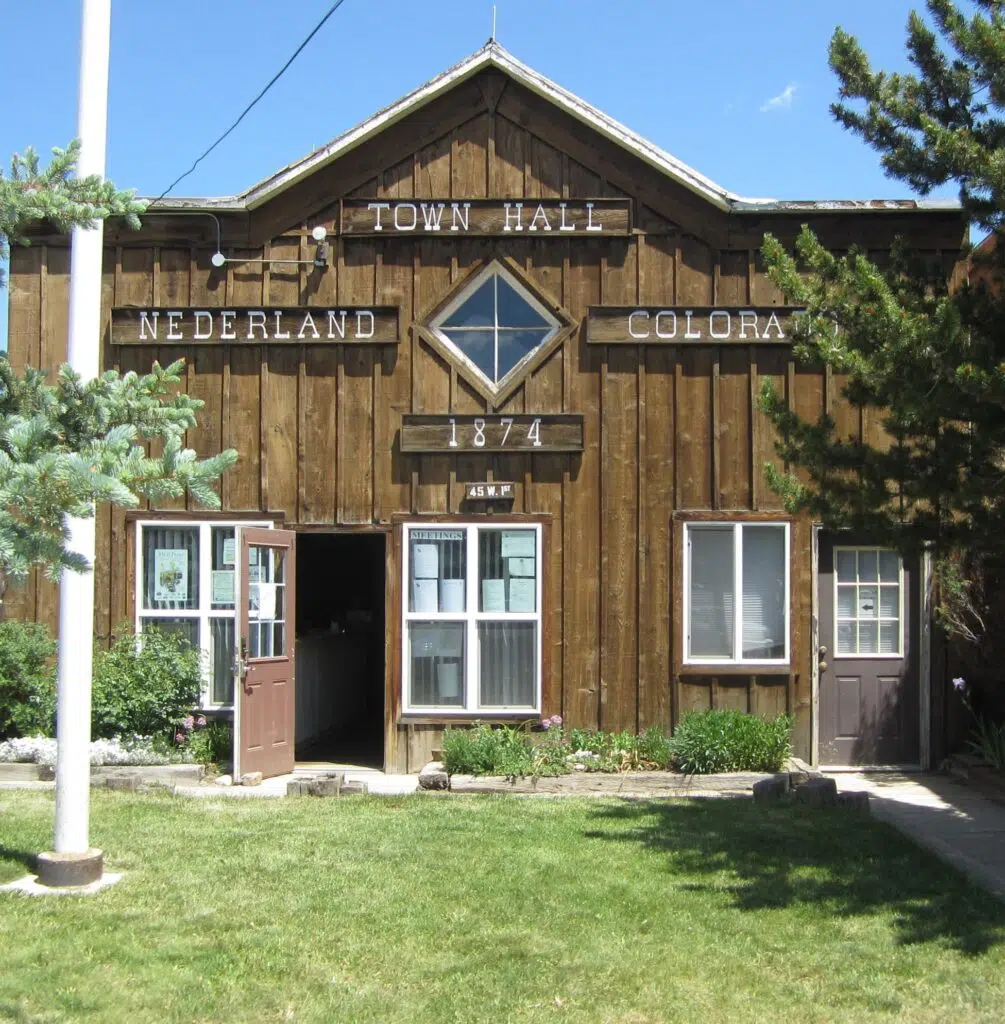
Nederland emerged from the challenges of the COVID-19 pandemic in a strong position to face that future, Fisher said.
“What’s unique about Nederland is that we never struggled financially with regard to our sales tax during COVID or even the wildfires,” she said. “We actually saw an increase, slightly, and a lot of that was because when the community shut down, people shopped locally. The majority of our residents are commuters who work out of town, so when they all got to work from home, we saw that economic benefit in that regard because people shopped at local establishments.”
Facing the biggest challenge were restaurants, bars and coffee shops, which had to figure out how to serve customers given the public-health guidelines. “Outdoor dining doesn’t work in Nederland when it’s only summer four months out of the year,” Fisher said. “So they got really creative with to-go programs or deliveries or creating covered outdoor dining so people really could use it all year long.”
Fisher said the town and its Downtown Development Authority financially contributed to some of those businesses during the pandemic so they could meet public-health guidelines.
The town also kept a watchful eye on nearby wildfires in 2020 and 2021 but wasn’t affected, Fisher said.
“When they were evacuating Ward last year, we did serve as a check-in point; we weren’t really a shelter,” she said. “That was only for a couple hours that day, but otherwise we haven’t been impacted by the wildfires — knock on wood.”
Nederland socked away some money just in case.
“As a town, we operated on a 10% to 15% contingency budget because we weren’t sure if we were going to be in an OK place financially,” Fisher said, “so it was pleasantly surprising. We have quite a bit of money in our reserves because we cut expenses, but still saw a steady stream of sales taxes and property taxes coming through.
“We’re continuing to do well,” she said. “Our sales-tax trends are on track. We’re not seeing huge spikes, but no declines either. They’re very consistent year-to-year, even pre- and post-pandemic.”
More immediate concerns to be addressed before 2030 are revitalizing Nederland’s central business district and dealing with traffic and parking issues throughout the year — from the quirky Frozen Dead Guy Days festival in March to normal summer tourism, throngs that come to marvel at autumn’s golden aspen leaves, and skiers and boarders heading for Eldora in winter.
“There has been a lot of focus on ways that we can redevelop our downtown and try and put more money into that area by helping the businesses that already operate and then encouraging more businesses to come in,” Fisher said. “It’s on people’s minds, an opportunity for us to invest if we were to increase sales taxes.”
At Tuesday’s meeting, the Board of Trustees will consider coordinating a November ballot issue with Boulder County that could generate extra revenue by raising taxes on sales, property and marijuana.
“We actually haven’t landed on the amounts,” Fisher said. “The Board of Trustees will be discussing that at its meeting on the 16th, and decide what they’re going to do, percentage wise. But we’ve already notified Boulder County, and we have until Sept. 9 to narrow in on that ballot language.”
Support for downtown redevelopment is a top-of-mind issue in the Aug. 23 election. Ron Mitchell, who has acquired many downtown properties over nearly six decades and runs Nederland Central Business District Redevelopment LLC, noted that “some of the candidates are for redevelopment, some want limited, and some are absolutely against it.
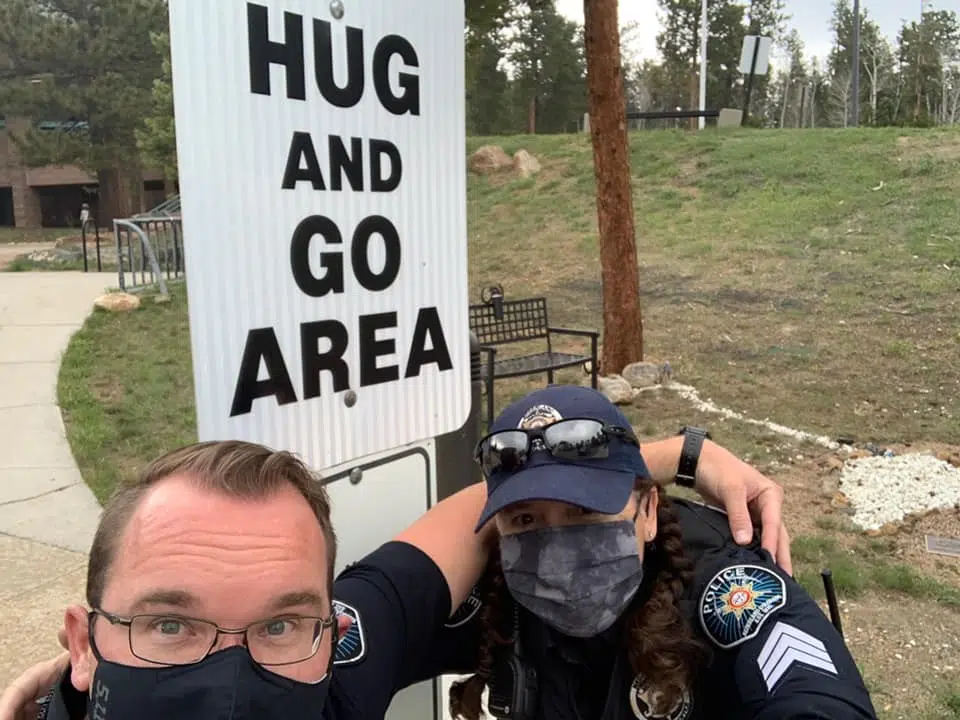
“It’s a broad spectrum,” he said.
With input from public meetings and charrettes, Mitchell has developed a concept plan for a revitalized downtown that includes a hotel about the size of the St Julien in Boulder, with between 75 and 95 rooms, conference rooms and other amenities.
“That’s still in kind of a concept phase,” Fisher said. “He hasn’t submitted any building permits yet.”
More overnight lodging in Nederland could alleviate some of the traffic coming up from the urban corridor below.
“We didn’t lose any businesses during COVID, which is incredible,” Fisher said, “but we want to make sure we’re supporting the ones that stayed strong and made it through, and then keep encouraging people who want to bring their businesses to Nederland.
“Some of that comes with proposed code amendments,” she said. “Right now, we have a very strict parking-count requirement if you’re in our central business district. The town board is looking at amending that to remove that so that you could fill more of the downtown and then develop parking on the outskirts.”
The goal, she said, is to encourage visitors to park on the edge of town and then find their way through wayfinding systems to make their way downtown. “They want signage and an app,” Fisher said, “and the DDA is financially championing that project.
“We have no paid parking, but that is a proposal coming before trustees on Aug. 30 — paid parking in the CBD, then encouraging free parking on the outskirts of town and developing a trail system so you could park out there and walk a trail to the CBD with ease. They’ll actually access more businesses by doing so because downtown is only a sliver of all the businesses we have here.”
During the pandemic, the Eldora ski area adopted a reservation system for parking that “seemed to work pretty well,” Fisher said, but it was removed last year.
Eldora has won approval to expand its parking, she said, and brought in flaggers and changed the signage at the bottom of the canyon to indicate when lots are full and encourage skiers and boarders to use the Regional Transportation District’s regional Route N buses to Nederland from Boulder’s Downtown Transit Center at 14th and Walnut streets.
“So they do take a lot of proactive steps,” Fisher said. “It’s just that people are still coming. They may be missing the messages and end up struggling to find parking. When they park out at the high school, and then move downtown to catch the bus to Eldora, that’s why we’re expanding our own parking, to recognize that we’re going to be hit with that no matter what, and we need to accommodate it.
“And then our summers are just as busy,” she said, “and during leaf-peeper season. people get stuck if they’re trying to move through Nederland too.”
The Frozen Dead Guy Days festival returned to Nederland in March after a two-year hiatus and drew throngs of around 20,000 people, Fisher said, “but they’re evaluating whether the festival has outgrown Nederland. They haven’t submitted permit applications for next year yet.”
Whether the festival returns, figuring out where to put visitors’ vehicles remains job one in Nederland.
“It would benefit our town to look at where we can expand our parking,” Fisher said. “That’s our biggest focus.”
Estes Park
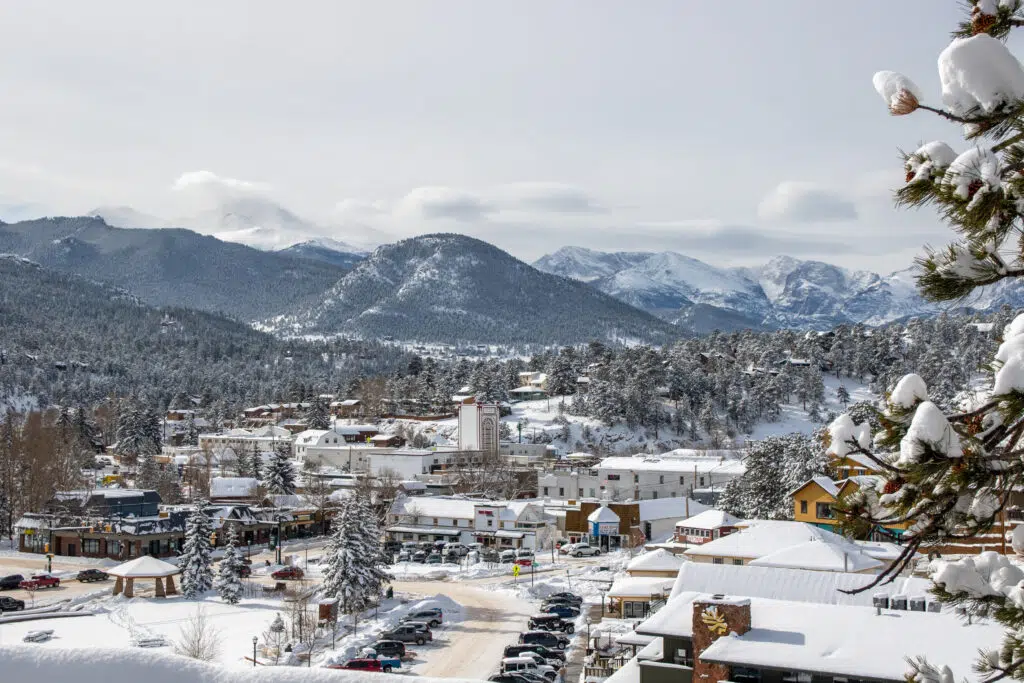
Events in August are having a huge impact in the tourism-dependent town at the eastern gateway to Rocky Mountain National Park as well — especially regarding finding affordable housing for the workers who serve those visitors.
On Aug. 1, the Visit Estes Park marketing district decided to ask voters in November to approve an increase in the lodging tax that visitors to the town pay at hotels, motels, guest houses and short-term vacation-home rentals. The proceeds would help fund housing and child care for workers. The ballot issue would raise the lodging tax from 2% to 5.5%, allocating the additional 3.5% — revenue estimated to be around $5.25 million — to fund workforce housing and child-care initiatives.
“We have all known for literally decades that both of these issues are crucial to solving if we all want to continue in business,” said Deborah Gibson, who chairs the VEP board of directors and who has co-owned Rams Horn Village Resort since 1989.
The Estes Park Economic Development Corp. “was a big part of that and still is,” said Adam Shake, its executive director. “The vote’s coming up in November, and we are helping campaign for that.”
Estes Park’s ability to put the lodging-tax increase on the November ballot was made possible by this year’s passage of House Bill 1117 in the Colorado Legislature. Signed March 31 by Gov. Jared Polis, the bipartisan bill allows counties and local marketing districts that have levied voter-approved lodging taxes — previously allowed only to pay for advertising and marketing — to ask voters for extra money to spend on housing and child care for the tourism workforce or on “enhancing the visitor experience” through items such as improving outdoor-recreation facilities. Voter approval is necessary under the Taxpayer’s Bill of Rights, and at least 10% of the generated revenue must be spent on marketing and advertising for the tourism industry. The law took effect Aug. 10.
Shake said the EDC also works as part of a Workforce Housing Collaborative with the town and its housing authority. “We meet on a regular basis to help determine what our organizations can do to further any kind of workforce housing solution,” Shake said. “I think we really need to get a handle on workforce housing because everything revolves around that. Workforce housing, affordable housing, attainable housing — it’s always going to be an issue in mountain towns. The lodging tax money will help, but it’s not going to solve the problem. I think that housing will be an issue that our grandchildren and great-grandchildren will be tackling.”
Anticipating revenues from the lodging tax, the town Board of Trustees on Aug. 23 will discuss whether to continue, modify or rescind the impact fee for short-term rentals. Also at that meeting, Finance Director Duane Hudson will report on budget strategies designed to meet the demands of inflation and a possible recession.
Facing such challenges is nothing new for Shake and the EDC.
During the pandemic, he said, the EDC worked with businesses to help them get their Payroll Protection Program loans “and were relatively successful there. We did lose more of our workforce, though, because the jobs were easier to come by with companies that went remote.
“In 2021, the numbers started to come back up pretty good,” Shake said. “People finally started being able to travel; they had an itch to get out of the house, and travel for the first time. A lot of them came up here, so we had big numbers in 2021. In fact, they were larger than normal.”
And this year? “It depends on the industry,” he said. “Some businesses are up, some businesses are down. But it’s still a pretty strong year overall.
“It also has to do with the heat” that’s been setting records in Front Range cities, Shake said. “They want to get up into mountain towns and take a little break from the heat.”
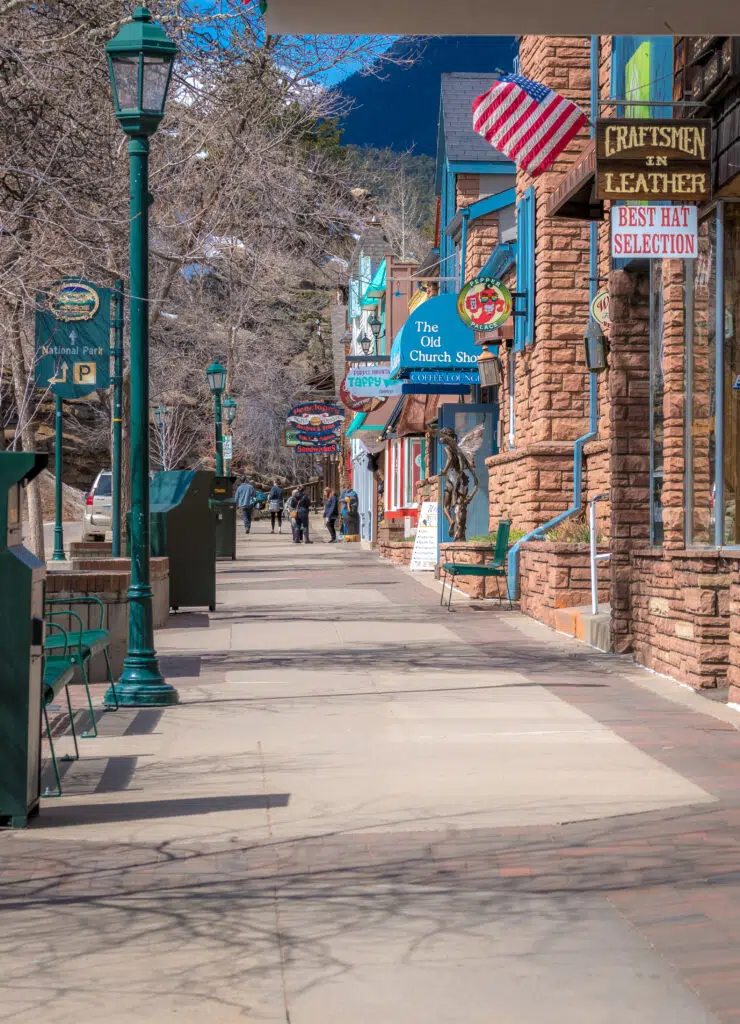
The nightmare year of 2020, in which the pandemic and devastating wildfires presented what Shake called a “double whammy” for Estes Park, is long gone. “We’ve had a pretty wet year,” Shake said, “and that makes us feel good when we get it because we don’t have to worry about wildfires.”
This wet year also has brought some flash flooding and a memorable summer hailstorm, however.
“The weather’s always wacky up here,” Shake said. “Thankfully, there was not a whole lot of property damage.”
The EDC’s BASE program — Business Accelerator Services of Estes — has more than 20 companies lined up to start its first courses in October, and the organization also holds a Business Book Club and a monthly “Caffeinate and Collaborate” meeting over coffee.
In future years, Shake said, “I like to think that we’re going to see more outdoor gear and apparel testing. I like to think we’re going to see more outdoor gear and apparel companies doing light manufacturing up here. I would like to see more diversification in business types, whether that’s through our 1-gig broadband Tralblazer system or other incentives.”
But his main focus for now will remain on workforce housing.
“People who work here have to be able to live here,” Shake said. “That’s my ultimate goal — that we can raise living wages here in Estes Park that match housing prices.”
Lyons
Prompted by its own need for workforce housing and fueled by the same HB 1117 that motivated Estes Park to put a lodging-tax increase on the November ballot, the Lyons Board of Trustees on Monday night, Aug. 15, will consider a resolution to place a ballot issue before voters that would increase the town’s lodging occupation tax to a maximum of 8% per night.
During the COVID-19 shutdown, the town got some assistance from another bill passed by Colorado lawmakers as well, said Town Manager Victoria Simonsen.
“In Lyons, we’re 99% small business,” she said. “We don’t have a very big sales tax base and we really depend on locals buying local. What really helped us is that the Legislature passed legislation right before the pandemic that allowed local municipalities to get sales tax if something is delivered to their town.
“That saved us, to tell the truth. We are almost 50-50 of our sales-tax revenue being local versus non-local sales, so had we not had that, we would be in big trouble. The online sales during the pandemic were so big that it really helped us.”
The Legislature was able to allow local communities to decide to collect sales taxes on online purchases because of the U.S. Supreme Court’s 2018 ruling in Wayfair v. South Dakota. The high court voted 5-4 that states could charge tax on purchases made from out-of-state sellers even if those sellers don’t have a physical presence in the taxing state.
Some states began collecting taxes on internet sales in January 2019, Simonsen said, “but if I recall correctly, Colorado waited until July 1, 2019, for all the small businesses to catch up.”
Since pandemic-related restrictions eased, she said, “we’re seeing our housing market go absolutely bonkers.”
She added that “we have had several local businesses change hands. That’s not necessarily super uncommon, but what we are seeing is that businesses are being purchased by people from mostly Boulder — which is a little different for us. We used to be a lot more local folks.”
Sales-tax revenue is much stronger, Simonsen said — up about 7% this year compared with the same time last year, and up nearly 30% from before the pandemic.
“We are a little concerned that if we go into a recession, that’s going to change people’s buying habits and visitation habits,” Simonsen said, “but our property-tax revenue is strong. For now, we’re holding steady.”
A proposed Main Street hotel project would address some pressing needs in Lyons, she said.
Local group Moss Rock Development wants to build a $25 million, 79-unit boutique hotel in downtown Lyons, including a restaurant, rooftop bar and meeting spaces — “all that stuff we don’t have now,” Simonsen said.
The project is projected to bring 110 direct jobs and 83 indirect jobs to Lyons, she said. Between revenue from lodging, sales and property taxes, it would bring an estimated $650,000 a year to town coffers.
“When your budget’s $3 million, that’s a lot,” Simonsen said.
The developers have bought three adjoining properties for the hotel and have completed demolition on the site, she said. They’re now working with the town’s Urban Renewal Authority to obtain some tax-increment financing and still are hoping to open the hotel in the fourth quarter of 2023 — but Simonsen said they haven’t broken ground yet.
The only problem with the development, she said, is that, just as in Estes Park, “we have very little affordable housing, and so we are very concerned about where those employees are going to live.”
The silver lining, she added, is the ability to keep more overnight visitors in town.
“We now have five outdoor wedding venues in and around Lyons, and they are now totally booked for Thursday, Friday, Saturday and Sunday night weddings from April through October,” Simonsen said. “All of the wedding guests have to leave Lyons and have to lodge in either Boulder or Longmont.
“So we think during the high season between the wedding venues and our festivals, the hotel is going to totally change our downtown and bring in a built audience for our restaurants and bars.”
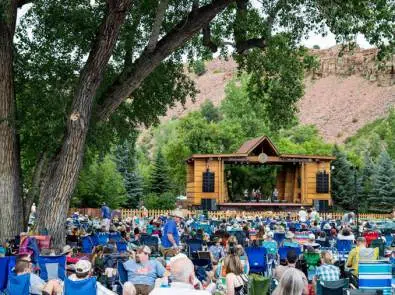
Lyons remains concerned about generating visitors during winter “because we don’t have a ski resort near us,” Simonsen said, “ but we’re working with the Colorado Tourism office to identify some shoulder-season activities that would be appropriate for us to try to market to people to come here.”
It’s likely to help that Planet Bluegrass, the outdoor entertainment venue along U.S. Highway 36 on the west edge of Lyons, negotiated a new contract with the town board this year to allow it to host more and smaller concerts instead of just the three main ones — RockyGrass, FolksFest and the Mabon Festival.
Seriously damaged by the deluge and flood of September 2013, Lyons is just completing its last flood-recovery project, a pedestrian bridge to open in September that will connect the hard-hit Confluence Park neighborhood with downtown.
“So we’re ending flood recovery and starting several major projects through American Rescue Plan and some of the other Biden dollars coming down,” she said. “We still have a full plate of things going on here.”
Editor’s note: This story has been changed to correct the spelling of Miranda Fisher’s first name.
Merriam-Webster defines an “august occasion” as one full of majesty, grandeur and importance. Those adjectives certainly apply to August in the major foothills communities along the Northern Front Range – Nederland, Estes Park and Lyons – because what’s happening there this month is likely to have huge impacts on their futures.
Nederland
For the town at the top of Boulder Canyon and the gateway to the Eldora winter sports area, four dates in August have momentous implications. On Aug. 3 last year, the town adopted an ambitious…

